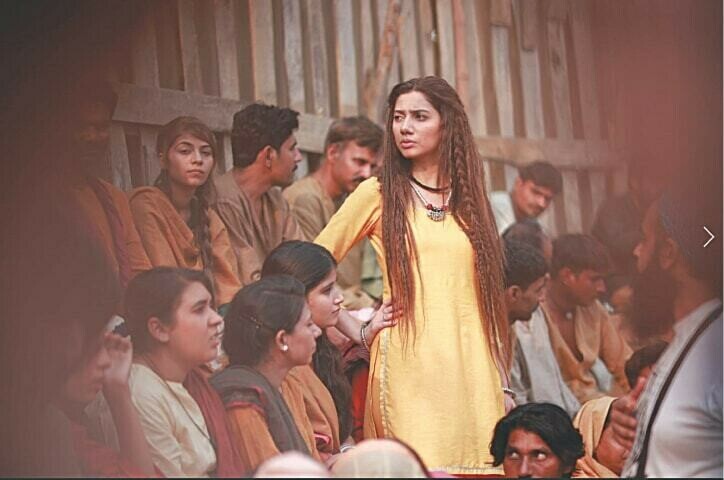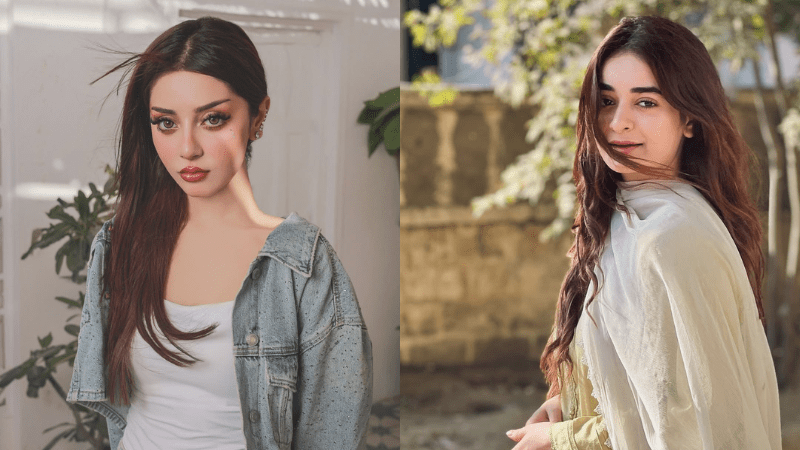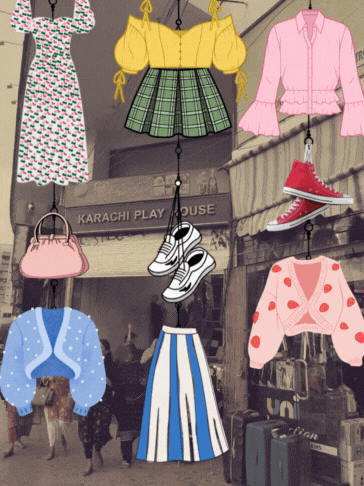The eventual success of The Legend of Maula Jatt may be a story on its own
“This is The Legend of Maula Jatt we’re talking about! You are bound to go past your deadline,” producer Ammara Hikmat laughs.
Although I laugh too — this was genuinely a good joke once you frame it in the context of the film’s constant delays — the jest doesn’t negate the effects of tension creeping up on you.
To clarify the context, it was nearly 1:30 at night when this joke was cracked and this feature was already one day over the editorial deadline.
To the makers of The Legend of Maula Jatt (TLoMJ) — the chiefs of the ship being Hikmat and writer-director Bilal Lashari — the tensions associated with delays had lost their edge years ago.
TLoMJ had been in production since January 2017, save a shot or two, and the film wrapped up its principal photography sometime in June 2019. By conventional filmmaking standards, this was an extremely long shoot, but still the film would have been ready for release in 2020, if Covid-19 hadn’t shut down the world.

Call the delays the uninvited hex associated with TLoMJ — though, as far as I’ve understood it, no one seems to mind this superstitious enchantment; or rather, to be precise, everyone seems to have grown accustomed to it. For this, blame Bilal Lashari then, the wunderkind director who broke the box-office once with Waar in 2013, and who has since then been labelled as the maverick maker of too-big-to-fail, high-concept blockbusters in Pakistan.
Ammara tells me about the out-of-control instances that kept adding to the delays in production. Take, for example, the chief of the culprits: bad weather. TLoMJ is mostly an outdoors film; few sets were made in studios. This left the crew, which supposedly numbered 500 at times (though it could have been a figurative number) and the huge sets at the mercy and whims of the elements.
Bad weather ruined a big sequence that required every trained horse in the region; then, more bad weather ruined scenes between Fawad Khan and Hamza Ali Abbasi, the two key players in the film, after they spent hours in make-up; and then later still, bad weather delayed a good number of Mahira Khan’s scenes who, I am told, had been shooting several projects at the time, and had scheduled specific dates for production.

“Mahira became our ‘whether’ girl — as in whether we would be able to shoot anything the day she comes over,” Ammara jests.
When bad weather wasn’t taking the production down, it was something else. At one time, the production had all but lost their international stunt team, she recalls.
The stunt crew, who had flown to Pakistan despite warnings and apprehensions of terrorist threats from their respective embassies, used to frequent a coffee shop before coming on set.
It just so happened that, one day, there was an explosion at the very coffee shop after the crew left. Although the explosion wasn’t terrorist-related — a gas cylinder had blown-up — it was enough to send the stunt crew packing out of Pakistan. It would take months, and a lot of effort, to line them up again, Ammara narrates.

Things didn’t get any easier. Out of the blue, a court case about copyright infringement would bring unwanted hype to TLoMJ. The producers of the original Sultan Rahi-Mustafa Qureshi starrer Maula Jatt (1979) sued the makers of TLoMJ because, according to them, the rights of the remake weren’t sought by the new film’s production company.
The matter was analysed in detail in Icon [The Jatt’s Latest Stand, January 20, 2019], and a conclusion was reached months later. However, Ammara doesn’t want to get into the details of that today, she says.
“The matter was amicably resolved out-of-court though, after our experience, I think filmmakers started taking issues of intellectual copyright more seriously,” she explains.
Ammara also doesn’t want to talk about the budget of the film. “Let’s just say that TLoMJ is not called the biggest film in Pakistan’s history for no reason,” she declares with utter ambiguity.

In what has been the most extensive and detailed conversation on the film, Bilal Lashari tells me everything I need to know to understand this film.
The idea of making the film on Maula Jatt came to him during Waar, but he didn’t actually start work on the adaptation until a year later, he says.
“It was an evolutionary process. The initial idea was to do my take on the Punjabi gandasa genre. It was a nice idea to revisit it,” he says. Gandasa films are a cult genre, he explains, and when the films stopped working at the box-office, people blamed this sub-genre for the downfall of the industry.

“The genre did not evolve with time. [In fact], it hasn’t aged well in any capacity. Take the original Maula Jatt for example. I first saw it when I was very young, and when I revisited it, I felt it had dated. Just remaking the very thing would not have been enough,” Bilal says.
Bilal tells me that he had mixed feelings about the film, but still the allure of the idea was too strong to ignore. He began writing the screenplay in English and, then later, when it came to dialogues, he felt it necessary to borrow key Punjabi dialogues from the film.
“When I began writing the dialogues, that was when my perspective of the original changed,” he says.

If everyone associated with the film is in awe of Bilal Lashari, Bilal himself is in awe of Nasir Adeeb’s dialogues. It was a no-brainer to have the original writer of Maula Jatt, its prequel Wehshi Jatt, and subsequent entry Maula Jatt In London, be the dialogue writer for TLoMJ.
It was a bumpy relationship at first, Bilal tells me, but then, as drafts continued to evolve (I’ve heard, there are as many as 80 versions of the film), the veteran screenwriter had completely wowed the young filmmaker.
“I was expecting him to come to my wavelength because it was not an option to change the nature of this project,” he asserts, sticking to the grandness of the idea he wanted to pull off.

“I am a very visual director and, at first, I wanted my characters to have fewer, appropriate moments to speak. However, after Nasir Adeeb wrote the dialogues, I felt I had to embrace all of them,” Bilal says.
Talking about the scope of the production, Bilal tells me that it had to be big in every way, even when you talk about the film’s story. The building blocks are the same but everything — characters, setting, era, tone — had to change. And that it had to be a hit… at least in his own mind.
“It had to be a big departure. Agar ye panga lena hai [If you want to take on the challenge], then you don’t have an option. You have to make a hit film in your mind and work backwards,” he says.
“Your competition is not with the original Maula Jatt but rather the idea of it. The film is a fixture of pop-culture. Over the years, it became too big.” So Bilal had no option but to go bigger.

“The reality is, if you show Maula Jatt to today’s young audience, they would laugh for five minutes and then turn the film off. My version has to acknowledge and celebrate the original, while being original itself,” he says.
However, originality doesn’t mean overly stylised, Bilal explains as our conversation veers towards the apparent visual perception of the film.
“We’ve seen Punjab in every form, so we took our movie towards a realistic-fantasy side. It had to be reinterpreted and reimagined in a different, pre-industrial period. There are no firearms in the film, nor is there electricity,” he says.
Talking about Mahira Khan, who was away from Pakistan and was not available for this interview, Bilal says that he is personally a fan of hers. “I felt Fawad and Mahira have that hard-to-define screen chemistry.”

Despite being the leading lady of the film, the role is not that extensive, Bilal reveals. He considers her character a very important supporting role, and that her inclusion adds a bit of emotional cleansing to what is a very grittily toned film.
Bilal considers TLoMJ an ensemble film. The cast includes Humaima Malik, Gohar Rasheed, Nayyer Ejaz, Shafqat Cheema, Faris Shafi and Ali Azmat in key roles that help accentuate the severity of the story.
Given the nature of the story and the screenplay, there are big margins for actors throughout the film, the director adds. “The Natts, for example, are very dramatic and theatrical by design,” he says.
One of the key characters from the Natt clan is Daro, played by Humaima Malik.
In another of the very late-night conversations (it was, again, nearly 1am when we spoke), Humaima told me why it was both difficult and yet easy playing Daro.

“You get very rare opportunities where you work with directors who give you the liberty and freedom as an actor,” Humaima tells Icon over the phone.
“I found him to be a naimat [blessing]. He never told me how to do my dialogues, or hindered me in the way I performed her,” the actress tells me. “Daro is a sexy, sensuous queen,” Humaima explains. “She walks with regality — like how a queen walks — and talks how a queen talks, with her head held high and her chin up. She is a lone, empowered woman in a clan that is predominantly made up of men.
“Noori has no weakness, except Daro,” Humaima emphasises. “When you realise you’re the apple of your brother’s eye, then you get strength to assert yourself [in dramatic situations].”
The actress draws inspiration for Noori’s and Daro’s relationship from the one she has with Feroze Khan, her real-life brother.
Explaining the Natt clan in detail, Humaima says that every character is a hero in their own world. “The Natt clan has one agenda. The difference is how every character is pushing that agenda.”
According to the actress, the Natt ensemble, and their shenanigans, give the film a unique sense of intrigue that will keep the audience hooked.
Hamza Ali Abbasi, who plays a new version of Noori Natt, couldn’t agree more. “I saw the character evolve from the very beginning, so it was relatively easy for me to get back into who he was, even after prolonged lapses of time,” he explains as we discuss everything from long spells to make-up, to the way he perceives and plays the character.
“Noori is very content. He is content about his own power. Secure about his domain. In fact, he is so secure that what he really wants to do is to feel insecure, feel threatened. He needs a challenge and a challenger.
“Noori is high on power. That’s his only kink. Some are financially corrupt and some are corrupted from power. He is the latter. But he is also very humble about things at times.”
Hamza recalls a few scenes from the original Maula Jatt that tells you that even Mustafa Qureshi’s Noori Natt had intricate layers to him (those who have seen the original can attest to this).
“A legendary actor has made a legendary character,” Hamza says, acknowledging that he learned a lot from Qureshi’s depiction of the character.
I asked whether it was difficult for Hamza to maintain his physicality and performance during the three-year-long shooting spell?
“I already knew this was going to be a long shoot,” he laughs. “[In order to maintain the character and the performance] for me simplicity is the key.”
The actor would keep every aspect about the character — even its shades — into a “singular zone.” The single-minded simplicity would help give him consistency.
“I would not overplay nor underplay Noori, even if that type of performance would be for the betterment of the character,” he adds.
While Hamza did make peace with the long schedule, there was one thing that made him flinch: the make-up. “It was probably the only thing I didn’t look forward to.”
For Fawad Khan, the make-up wasn’t as prolonged, and maintaining the character was simpler still.
“It’s very easy. All I had to do was put on weight,” Fawad laughs. “So, you don’t stop eating junk food.”
“I had to maintain myself at 95kg — and it was a cinch. When you maintain that weight, your walk remains the same, and all your character traits remain intact. The only thing I had to do was not shave, which I didn’t.”
Fawad says that while developing the look of the character he had “come up with some crazy ideas. We have this idea of a prim and proper hero, when heroes come in all shapes and sizes. Since Maula Baksh is a prized fighter, at one point we were going to sew up one of his eyes,” he says.
“You remember Mads Mikkelsen’s character from Valhalla Rising — that was the look I was going for, but then we decided that it would be too much.”
As we talk, Fawad acknowledges the most obvious of questions without missing a beat.
Sultan Rahi’s shoes were pretty big to fill, he says, adding that not knowing how to speak Punjabi made it all the more difficult for him.
“I needed to learn how to speak [Punjabi], to understand the rhythm of [both the film and the character]. I couldn’t understand the original film through and through,” he says, confirming that he only saw important chunks of Maula Jatt.
His version of the character sticks to the traits of the original character but, since the film is both a homage and a departure from the source material, they had the luxury of tweaking Maula Baksh for today’s audience, he says.
“Obviously, because the era is different, we could take the liberty to play with [everything], even the accents, because the film is going to be catering to a very wide audience. For us to stick specifically to certain dialects, certain words and certain areas [of the region] would not be a wise choice,” he says, adding that understandable accents in what would be a general palette of Punjabi was also helpful for him as well.
Although committed to see the film through right till the end, Fawad tells me that he did have doubts about the movie at times.
“We were fighting against the scope of the project. This was purely an outdoor film. No studio floors could accommodate the scale of the production.”
There was also this long pause in filmmaking in Lahore in the last decade. For TLoMJ, the crew had to be retrained, the actor explains.
Surprisingly, of all of Lollywood’s talents, Nasir Adeeb, turns out to be the biggest student of this endeavour.
The acclaimed screenwriter of every Maula Jatt movie made till date, Nasir Adeeb is the Pride of Performance-awarded veteran of the industry. As the dialogue writer of TLoMJ, Nasir Adeeb tells me that he has learned what it takes to write films for today’s generation of filmmakers. “I consider this my first film in this new era,” he tells Icon.
As we talk about his filmography, especially Wehshi Jatt (1975), his first film and the prequel to Maula Jatt, the writer gives out what could very well be a radical piece of information.
“People are under the misconception that Wehshi Jatt is the adaptation of Ahmed Nadeem Qasmi’s Gandasa. Read the novel and then see my film, and then tell me if I am wrong. The only similarity between the two is that they both have a character named Maula Baksh,” he claims.
As a preeminent writer of ‘gandasa’ movies, I ask Nasir Adeeb if the release and success of TLoMJ will help revitalise regional Punjabi cinema.
“I am certain it will. In fact, let me also tell you that, after the global success of TLoMJ, it is highly likely that filmmakers from Karachi will end up producing and directing Punjabi language movies!”
While TLoMJ will likely encourage movement in the production of regional language movies, the chances of it revitalising ‘gandasa’ films is less than likely. But then again, that was never the intention, Bilal tells me.
“I am no one to revive a genre,” he replies. “What I want to do is tell a story my way. It is as simple as that.”
While Bilal may have created a benchmark for Pakistani cinema to follow, where the eventual success of TLoMJ takes the industry will turn out to be its own story.
Originally published in Dawn, ICON, October 2nd, 2022













Comments